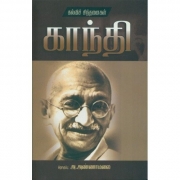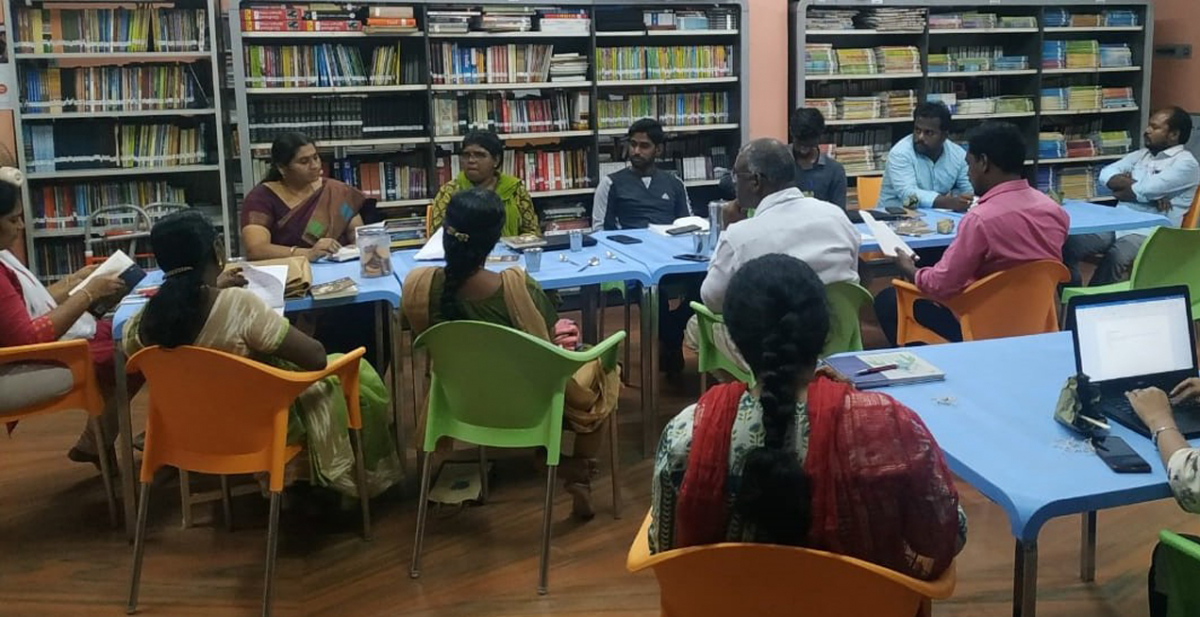Gandhi Kalvi Sinthanaigal, a book written by Annamalai is a compilation of various speeches given by Gandhi at multiple forums. The book also talks about Gandhi’s ideas on education and ‘Nai Talim’. It begins from where Gandhi got the ideas for Nai Talim and his inspirations being Leo Tolstoy and John Ruskin.

The book stresses on an education for students that is not too disconnected with his/her environment, an education that involves physical work, an education with reduces burden of books, an education that promotes learning together as a community, an education involving a lot of practical work, an education that teaches handicrafts, and an education that gives opportunity for the students’ diverse skills. There should be a close relation between what children learn in school and reality in their homes, families and communities. Education should always be free.
Summary of the discussion:
“The students should have independence and freedom in their learning environment and as teachers we should not consider ourselves superior and instead provide an equal, friendly and stress-free space for the children to learn”. The discussion began with above words. The book review of ‘Gandhi Kalvi Sinthanaigal’ covered areas of freedom for children, importance of teaching in the home language of students, and how experiential learning and learning by doing play a role in quality learning
The review was facilitated by teachers Vidhya, Dhanalakshmi and Jayashree and was attended by teachers and educationists. The summary of the book was shared with the teachers and the ideas put forth by Gandhi and his view on Education and his inspirations from Tolstoy and Ruskin were discussed.
It was also discussed as to how relevant the book is even today though it was written long ago. It would seem like nothing has changed since. Though we all would agree that teaching and learning should be a joyful experience and not seen as means to earn money, the reality is something else. Education has become a business that sells degrees and certificates. But the degrees and certificates don’t mean anything as we hardly ever apply anything we learnt in real life. This brings us to the question that why an education that is well connected to our lives and with hands on experience is important. Such an education stays with us for a lifetime.
The need for the teachers and students to see each other as equals was also discussed. It shouldn’t be such that the teachers hold all the knowledge and they are superior. Instead of the teacher giving out orders to students, the teacher should set an example by doing whatever is expected of the student, be it keeping the school premises clean or doing a handiwork.
Though the book stresses on learning-by-doing and having a classroom without the burden of textbooks, today the focus is only on exams and results. We have started board exams for even primary classes which is only increasing the stress of the students. With all the focus on exams and passing them, most often actual learning ceases to happen. Classrooms have become slaves to textbooks. Shifting focus to hands- on education is the need of the hour. But such a shift will invite a lot of criticism just as it did when Gandhi himself had introduced many new ideas on education.
The importance of education and instruction being in home language is stressed at multiple instances throughout the book. Knowledge can be accessed by a larger part of the population when it is in the home language rather than English, to which only a limited number of people have access. A connection towards what is being learnt happens only when it is taught in a familiar language to the students. Alienating students by using a foreign language is unfair to the learning of the students and we are limiting their access to knowledge. Education is expected to provide a holistic development but today’s education trains us only to be workers and employees.

The discussion concluded with the following quote from the book:
“I don’t remember anything taught from the textbooks, but I remember every detail from things teachers taught me beyond the textbook.” – Gandhi
Report compiled by Swetha A, Azim Premji Foundation, Puducherry
Term:
- Log in or register to post comments